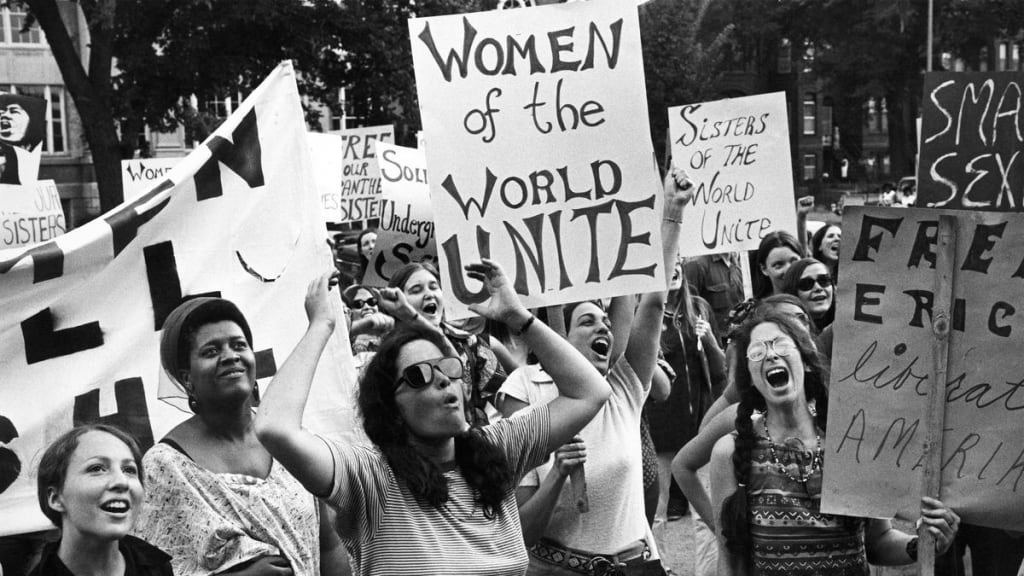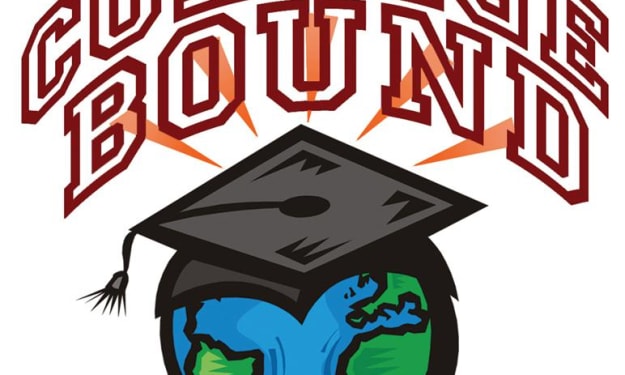
For my interview, I interviewed my nana, or grandma as many others would see her as (but don't call her that, she doesn't like it). She's 68 years young and lives every day to the fullest. She's become a mother figure for me throughout my life and she's always there when I need her. She likes long walks, golfing, and movies. She's the type of person you love to talk to because she just seemed so interested in anything you are saying. She's friends with everyone and it's hard to take her anywhere without her making a new friend. She's a ray of sunshine that can brighten up anyone's day.
I found out a lot about my Nana through this interview. It made me realize how little I knew about her. Her family was not conservative. She grew up on a farm with six siblings only one of whom was a boy. She's the youngest so by the time she was old enough to do chores, her brother was out of the house so they adjusted. She did lots of chores but the one she enjoyed the most was driving the tractor, which was seen as a boy's job. She took on this job even when others did not view it as a womanly job. She would much rather have been outside than inside. What really surprised me is no one really questioned it either—she just did it. It was what she had to do and that was that.
Throughout my Nana's life many of other women's gender struggles were not her own. Growing up in a liberal area made this possible for her but when she entered the workforce she had some of her first gender-related struggles. My nana's first career job was at Bank of America; she worked behind the counter for a few years before she worked for the state of California. Since it was a government job they made it very much seem like everything was equal. Of course, men dominated the higher up jobs. On her first day of work, her male supervisor came up to her and was being really touchy and was not being appropriate for work. After this, she tried to avoid her supervisor whenever she could. She never spoke up about this experience and even said she had forgotten about it until it was asked about in this interview. She never spoke up about this encounter because there wasn't anyone who would have done anything. There was no "me too" movement—in her time you just dealt with what happened and didn't mention it. Things today have improved from this but it's taken so long to get to where we are now and there are still so many instances that go unsaid because it can ruin someone's career. If my nana had stood up and said what had happened, there's a good chance no one would have listened or she may have been let go for making too much of a fuss. Experiences like this are why we need feminism and the “me too” movement, to have a platform to speak out against these people and have people who will work towards change.
My nana was also a single parent for part of her children's lives. Her kids were 5 and 8 at the time. She said that being a parent is one of the greatest experiences of her life but during the time she was a single parent was one of the biggest struggles. The challenges of raising children were still there and making ends meet was a huge struggle. She had a husband who wasn't around so she was both mom and dad. It was hard to get her ex-husband to take on the dad role because he didn't feel it was his place. He had the “men should work, women should take care of the kids” mentality. Her ex-husband has since stepped up and I know him now as my grandpa, I never would have seen him thinking this way. It was very shocking but I assume he has changed with the times because he no longer acts this way. But this is one of the biggest struggles women still face—getting away from these sexist views put in place by men and enforced by men. As well it is a struggle for men to get away for these societal expectations of them to be the breadwinner of the home. Realizing both of these expectations are problems is the first step to changing them to allow for people to feel more free to be who they are and not what they feel like they should be.
When I asked my nana what feminism was she thought it was only for women and wanted me to explain how it was more than just that. She was very open to feminism and wants to learn more. I asked her if she would call herself a feminist and she said yes because she wants everyone to have equal opportunities. Asking her what struggles women still face, she went blank. To her, for the most part, women are equal because the struggles are not the same. In many ways, I can see this because we do not face the same issues as before but there are many underlying issues that I continued to talk to her about. We disagreed on this a little bit but as I explained what issues women still face when it comes to things like feeling safe, not having the same credibilities because we are seen as emotional, and sexist expectations especially in the home my nana began to understand and see that there are still issues. We also discussed her own instances that came up in the interview and how those could be changed with more feminist voices speaking out about their experiences, like her touchy supervisor or her husband not feeling like being a caregiver was a man's role and how feminism applies to all, not just women, how everyone can benefit from more people speaking out with the feminist movement.
Overall I learned a lot. I feel as though me and my nana both gained knowledge from this interview. She learned more about feminism and has more of an open ear when it comes to the feminist movement and I learned more about her and what it was like to grow up in her time. Even though her experiences were closer to mine than what I was expecting there still was more struggle then there is now. Through her life, she has seen a lot of advances in the way women are treated but there is still a long way to go before it is where it should be. Feminism is still needed in today's society just as much as it was needed when my nana was my age. If feminism continues to work towards equality we may one day get there but we can't do that without this group standing up for people's rights.






Comments
There are no comments for this story
Be the first to respond and start the conversation.